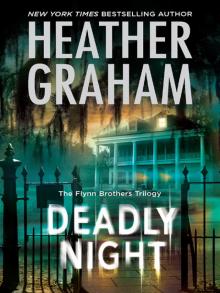 Deadly Night
Deadly Night The Uninvited
The Uninvited Dust to Dust
Dust to Dust Heart of Evil
Heart of Evil A Perfect Obsession
A Perfect Obsession The Keepers
The Keepers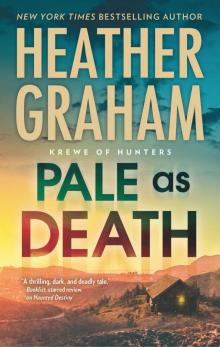 Pale as Death
Pale as Death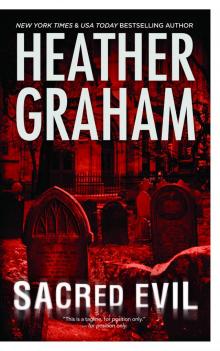 Phantom Evil
Phantom Evil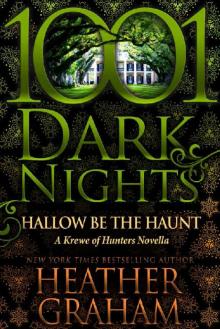 Hallow Be the Haunt
Hallow Be the Haunt Night of the Wolves
Night of the Wolves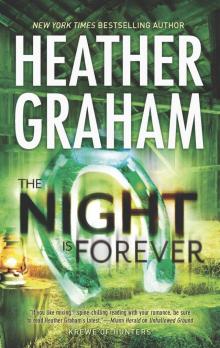 The Night Is Forever
The Night Is Forever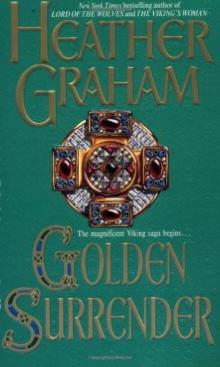 Golden Surrender
Golden Surrender Kiss of Darkness
Kiss of Darkness Beneath a Blood Red Moon
Beneath a Blood Red Moon A Dangerous Game
A Dangerous Game Ghost Shadow
Ghost Shadow Long, Lean, and Lethal
Long, Lean, and Lethal Fade to Black
Fade to Black The Rising
The Rising And One Wore Gray
And One Wore Gray Rebel
Rebel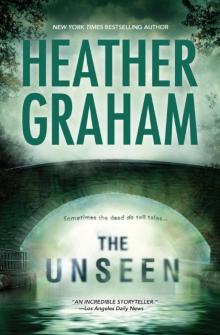 The Unseen
The Unseen The Night Is Watching
The Night Is Watching The Evil Inside
The Evil Inside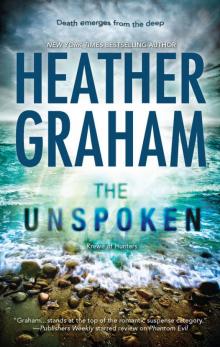 The Unspoken
The Unspoken The Night Is Alive
The Night Is Alive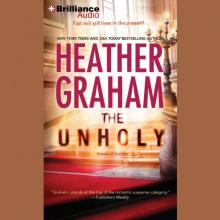 The Unholy
The Unholy Nightwalker
Nightwalker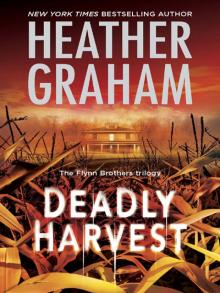 Deadly Harvest
Deadly Harvest An Angel for Christmas
An Angel for Christmas A Pirate's Pleasure
A Pirate's Pleasure American Drifter
American Drifter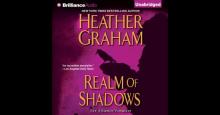 Realm of Shadows
Realm of Shadows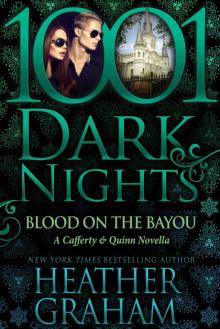 Blood on the Bayou
Blood on the Bayou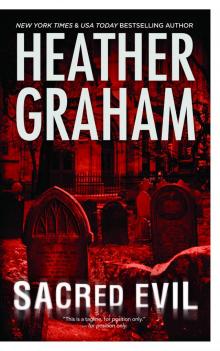 Sacred Evil
Sacred Evil Dying to Have Her
Dying to Have Her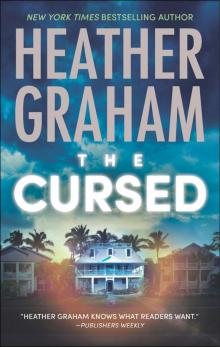 The Cursed
The Cursed Captive
Captive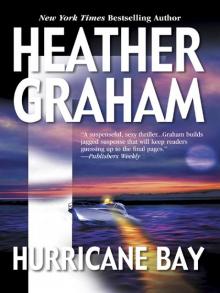 Hurricane Bay
Hurricane Bay Drop Dead Gorgeous
Drop Dead Gorgeous Ghost Memories
Ghost Memories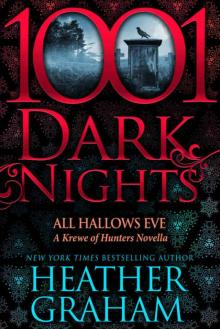 All Hallows Eve
All Hallows Eve Dying Breath
Dying Breath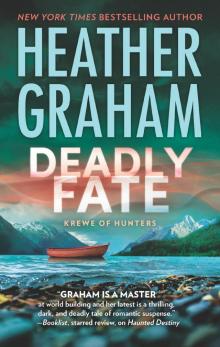 Deadly Fate
Deadly Fate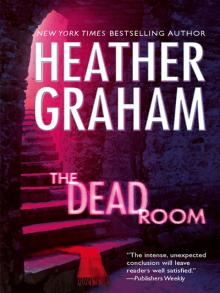 The Dead Room
The Dead Room Lord of the Wolves
Lord of the Wolves Ghost Night
Ghost Night Ghost Walk
Ghost Walk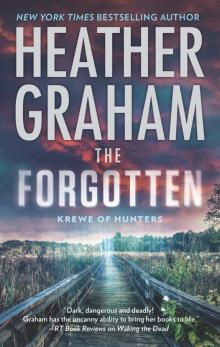 The Forgotten
The Forgotten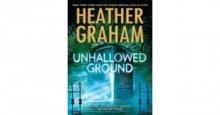 Unhallowed Ground
Unhallowed Ground One Wore Blue
One Wore Blue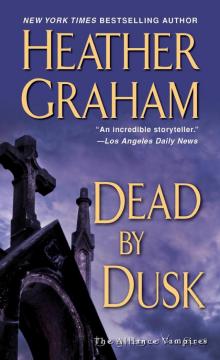 Dead By Dusk
Dead By Dusk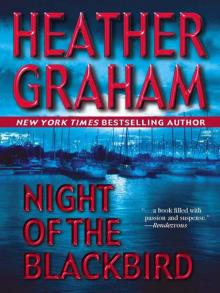 Night of the Blackbird
Night of the Blackbird The Dead Play On
The Dead Play On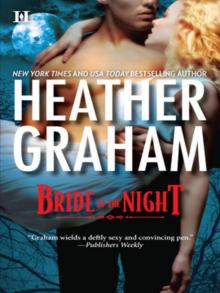 Bride of the Night
Bride of the Night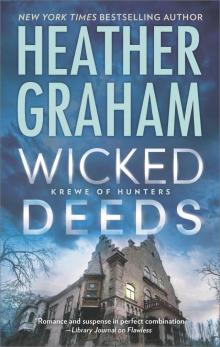 Wicked Deeds
Wicked Deeds The Forbidden
The Forbidden Triumph
Triumph Out of the Darkness
Out of the Darkness Love Not a Rebel
Love Not a Rebel The Last Noel
The Last Noel Tall, Dark, and Deadly
Tall, Dark, and Deadly The Death Dealer
The Death Dealer Dead on the Dance Floor
Dead on the Dance Floor Law and Disorder
Law and Disorder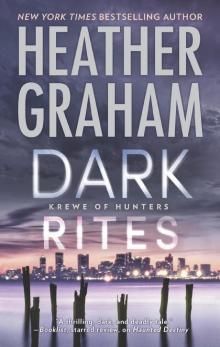 Dark Rites
Dark Rites New Year's Eve
New Year's Eve Hostage At Crystal Manor
Hostage At Crystal Manor And One Rode West
And One Rode West Home in Time for Christmas
Home in Time for Christmas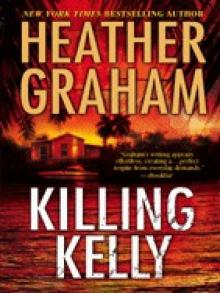 Killing Kelly
Killing Kelly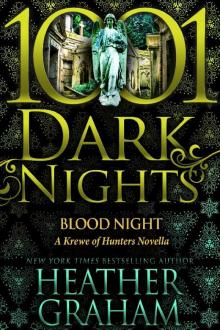 Blood Night
Blood Night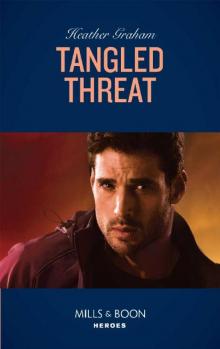 Tangled Threat (Mills & Boon Heroes)
Tangled Threat (Mills & Boon Heroes)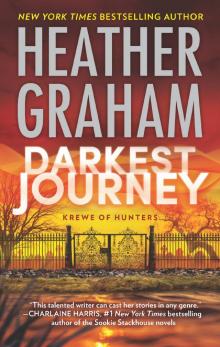 Darkest Journey
Darkest Journey Glory
Glory Deadly Touch
Deadly Touch An Unexpected Guest
An Unexpected Guest Night of the Vampires
Night of the Vampires Seize the Wind
Seize the Wind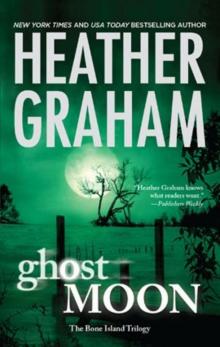 Ghost Moon
Ghost Moon The Vision
The Vision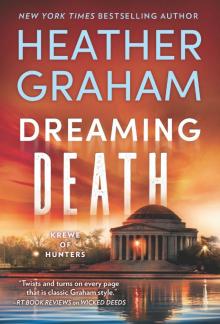 Dreaming Death
Dreaming Death Conspiracy to Murder
Conspiracy to Murder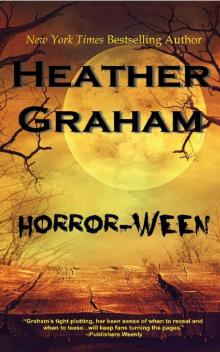 Horror-Ween (Krewe of Hunters)
Horror-Ween (Krewe of Hunters)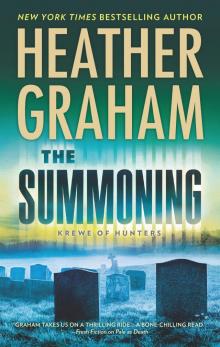 The Summoning
The Summoning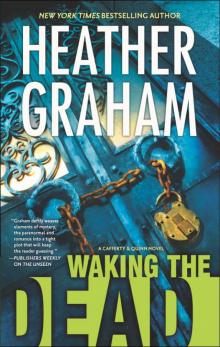 Waking the Dead
Waking the Dead Danger in Numbers
Danger in Numbers The Hidden
The Hidden Sweet Savage Eden
Sweet Savage Eden Tangled Threat ; Suspicious
Tangled Threat ; Suspicious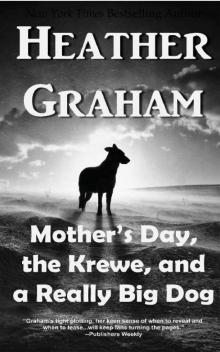 Mother's Day, the Krewe, and a Really Big Dog
Mother's Day, the Krewe, and a Really Big Dog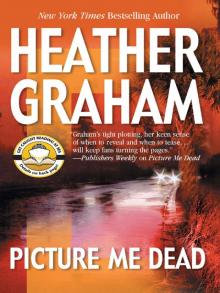 Picture Me Dead
Picture Me Dead The Killing Edge
The Killing Edge St. Patrick's Day
St. Patrick's Day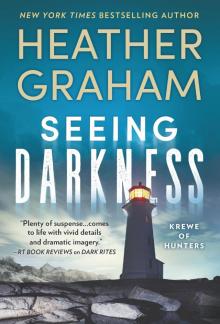 Seeing Darkness
Seeing Darkness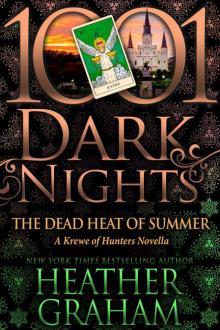 The Dead Heat of Summer: A Krewe of Hunters Novella
The Dead Heat of Summer: A Krewe of Hunters Novella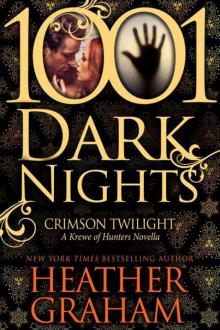 Crimson Twilight
Crimson Twilight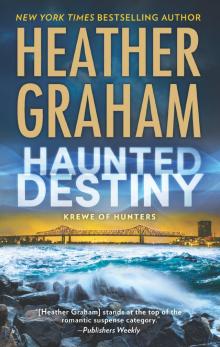 Haunted Destiny
Haunted Destiny Devil's Mistress
Devil's Mistress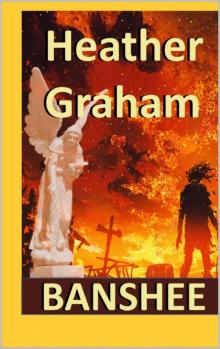 Banshee
Banshee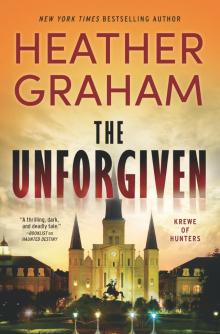 The Unforgiven
The Unforgiven The Final Deception
The Final Deception A Horribly Haunted Halloween
A Horribly Haunted Halloween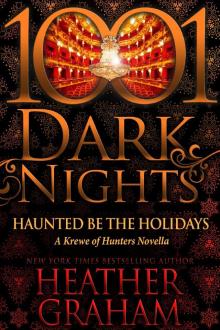 Haunted Be the Holidays
Haunted Be the Holidays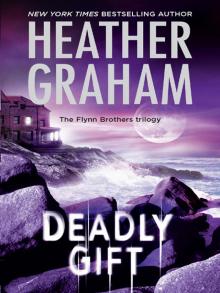 Deadly Gift
Deadly Gift Easter, the Krewe and Another Large White Rabbit
Easter, the Krewe and Another Large White Rabbit Haunted
Haunted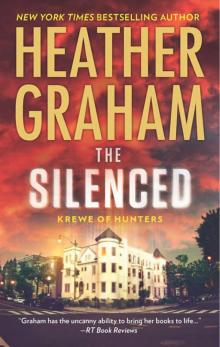 The Silenced
The Silenced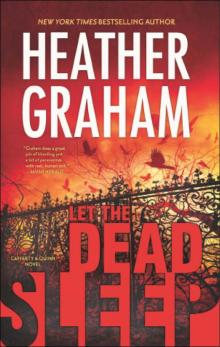 Let the Dead Sleep
Let the Dead Sleep Christmas, the Krewe, and Kenneth
Christmas, the Krewe, and Kenneth Big Easy Evil
Big Easy Evil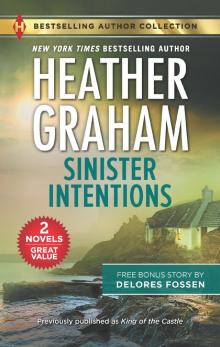 Sinister Intentions & Confiscated Conception
Sinister Intentions & Confiscated Conception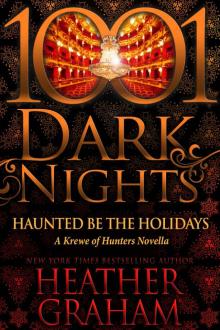 Haunted Be the Holidays: A Krewe of Hunters Novella
Haunted Be the Holidays: A Krewe of Hunters Novella Blood Red
Blood Red A Perilous Eden
A Perilous Eden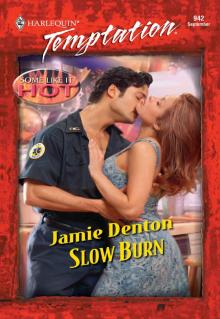 Slow Burn
Slow Burn Strangers In Paradise
Strangers In Paradise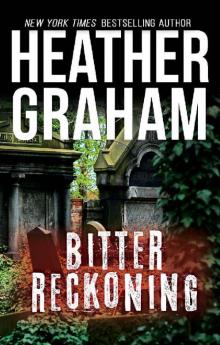 Bitter Reckoning
Bitter Reckoning Krewe of Hunters, Volume 1: Phantom Evil ; Heart of Evil ; Sacred Evil ; The Evil Inside
Krewe of Hunters, Volume 1: Phantom Evil ; Heart of Evil ; Sacred Evil ; The Evil Inside Do You Fear What I Fear?
Do You Fear What I Fear? The Face in the Window
The Face in the Window Krewe of Hunters, Volume 3: The Night Is WatchingThe Night Is AliveThe Night Is Forever
Krewe of Hunters, Volume 3: The Night Is WatchingThe Night Is AliveThe Night Is Forever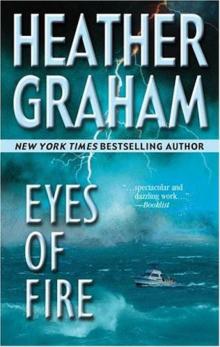 Eyes of Fire
Eyes of Fire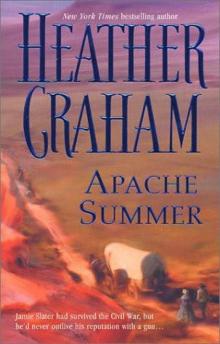 Apache Summer sb-3
Apache Summer sb-3 Sensuous Angel
Sensuous Angel In the Dark
In the Dark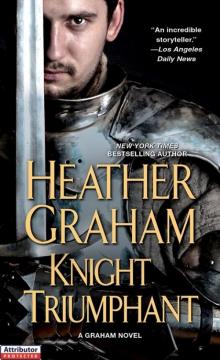 Knight Triumphant
Knight Triumphant Hours to Cherish
Hours to Cherish Tender Deception
Tender Deception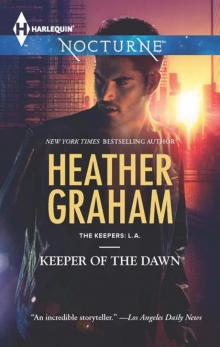 Keeper of the Dawn tkl-4
Keeper of the Dawn tkl-4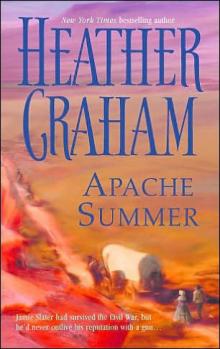 Apache Summer
Apache Summer Between Roc and a Hard Place
Between Roc and a Hard Place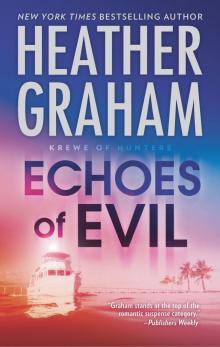 Echoes of Evil
Echoes of Evil The Game of Love
The Game of Love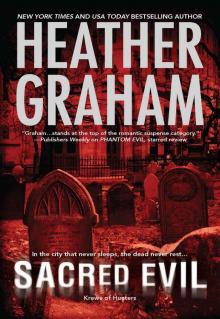 Sacred Evil (Krewe of Hunters)
Sacred Evil (Krewe of Hunters) Bougainvillea
Bougainvillea Tender Taming
Tender Taming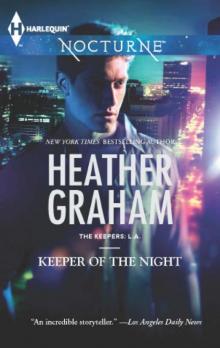 Keeper of the Night (The Keepers: L.A.)
Keeper of the Night (The Keepers: L.A.) Lonesome Rider and Wilde Imaginings
Lonesome Rider and Wilde Imaginings Lucia in Love
Lucia in Love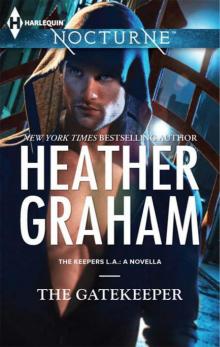 The Gatekeeper
The Gatekeeper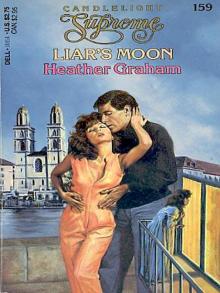 Liar's Moon
Liar's Moon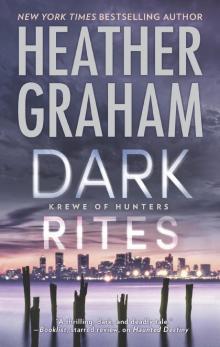 Dark Rites--A Paranormal Romance Novel
Dark Rites--A Paranormal Romance Novel A Season for Love
A Season for Love Krewe of Hunters, Volume 6: Haunted Destiny ; Deadly Fate ; Darkest Journey
Krewe of Hunters, Volume 6: Haunted Destiny ; Deadly Fate ; Darkest Journey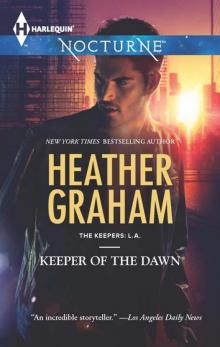 Keeper of the Dawn (The Keepers: L.A.)
Keeper of the Dawn (The Keepers: L.A.)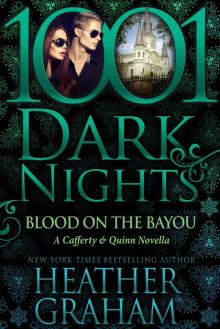 Blood on the Bayou: A Cafferty & Quinn Novella
Blood on the Bayou: A Cafferty & Quinn Novella Double Entendre
Double Entendre A Perfect Obsession--A Novel of Romantic Suspense
A Perfect Obsession--A Novel of Romantic Suspense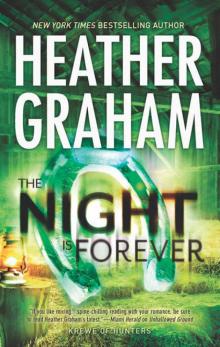 The Night Is Forever koh-11
The Night Is Forever koh-11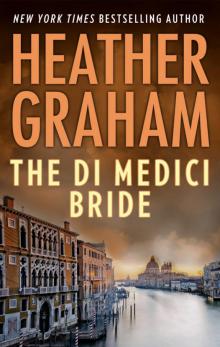 The Di Medici Bride
The Di Medici Bride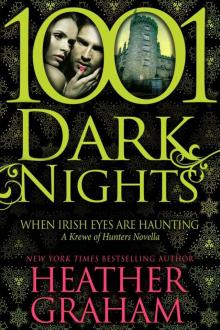 When Irish Eyes Are Haunting: A Krewe of Hunters Novella
When Irish Eyes Are Haunting: A Krewe of Hunters Novella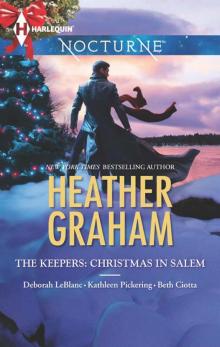 The Keepers: Christmas in Salem: Do You Fear What I Fear?The Fright Before ChristmasUnholy NightStalking in a Winter Wonderland (Harlequin Nocturne)
The Keepers: Christmas in Salem: Do You Fear What I Fear?The Fright Before ChristmasUnholy NightStalking in a Winter Wonderland (Harlequin Nocturne) Never Fear
Never Fear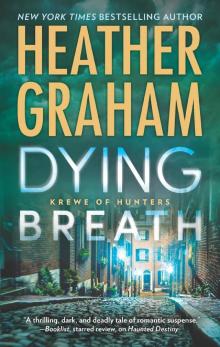 Dying Breath--A Heart-Stopping Novel of Paranormal Romantic Suspense
Dying Breath--A Heart-Stopping Novel of Paranormal Romantic Suspense If Looks Could Kill
If Looks Could Kill This Rough Magic
This Rough Magic Heather Graham's Christmas Treasures
Heather Graham's Christmas Treasures Hatfield and McCoy
Hatfield and McCoy The Trouble with Andrew
The Trouble with Andrew Never Fear - The Tarot: Do You Really Want To Know?
Never Fear - The Tarot: Do You Really Want To Know?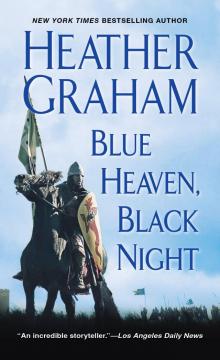 Blue Heaven, Black Night
Blue Heaven, Black Night Forbidden Fire
Forbidden Fire Come the Morning
Come the Morning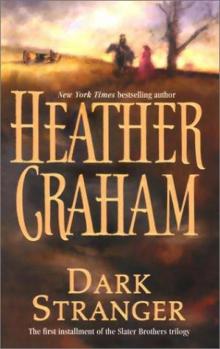 Dark Stranger sb-4
Dark Stranger sb-4 Lie Down in Roses
Lie Down in Roses Red Midnight
Red Midnight Krewe of Hunters Series, Volume 5
Krewe of Hunters Series, Volume 5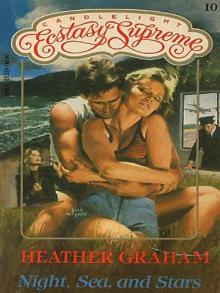 Night, Sea, And Stars
Night, Sea, And Stars Snowfire
Snowfire Quiet Walks the Tiger
Quiet Walks the Tiger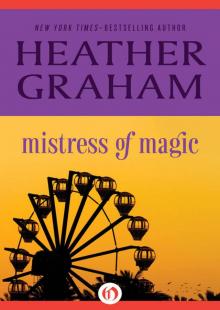 Mistress of Magic
Mistress of Magic For All of Her Life
For All of Her Life Runaway
Runaway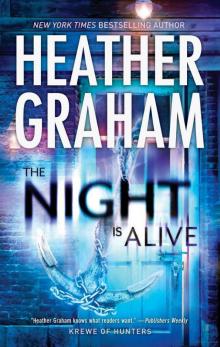 The Night Is Alive koh-10
The Night Is Alive koh-10 The Evil Inside (Krewe of Hunters)
The Evil Inside (Krewe of Hunters)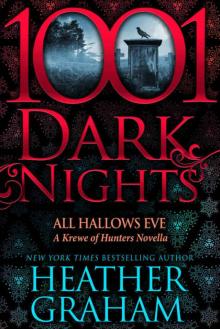 All Hallows Eve: A Krewe of Hunters Novella (1001 Dark Nights)
All Hallows Eve: A Krewe of Hunters Novella (1001 Dark Nights) Tomorrow the Glory
Tomorrow the Glory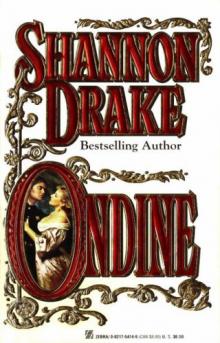 Ondine
Ondine Angel of Mercy & Standoff at Mustang Ridge
Angel of Mercy & Standoff at Mustang Ridge Bride of the Tiger
Bride of the Tiger When Next We Love
When Next We Love Heather Graham Krewe of Hunters Series, Volume 4
Heather Graham Krewe of Hunters Series, Volume 4 A Season of Miracles
A Season of Miracles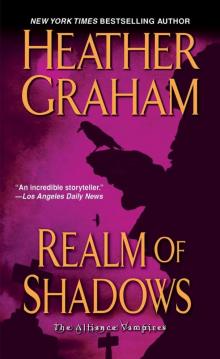 Realm of Shadows (Vampire Alliance)
Realm of Shadows (Vampire Alliance) When We Touch
When We Touch Serena's Magic
Serena's Magic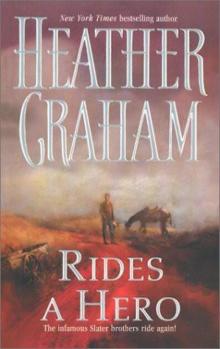 Rides a Hero sb-2
Rides a Hero sb-2 All in the Family
All in the Family Handful of Dreams
Handful of Dreams A Stranger in the Hamptons
A Stranger in the Hamptons Krewe of Hunters, Volume 2: The Unseen ; The Unholy ; The Unspoken ; The Uninvited
Krewe of Hunters, Volume 2: The Unseen ; The Unholy ; The Unspoken ; The Uninvited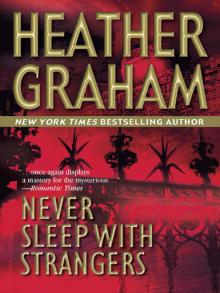 Never Sleep With Strangers
Never Sleep With Strangers Eden's Spell
Eden's Spell A Magical Christmas
A Magical Christmas Forever My Love
Forever My Love King of the Castle
King of the Castle Night Moves (60th Anniversary)
Night Moves (60th Anniversary) The Island
The Island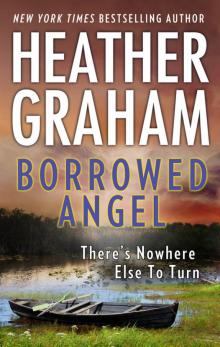 Borrowed Angel
Borrowed Angel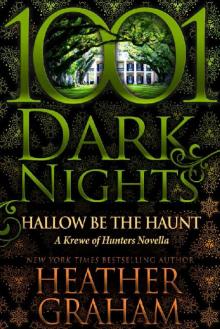 Hallow Be the Haunt: A Krewe of Hunters Novella
Hallow Be the Haunt: A Krewe of Hunters Novella Why I Love New Orleans
Why I Love New Orleans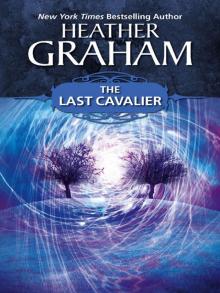 The Last Cavalier
The Last Cavalier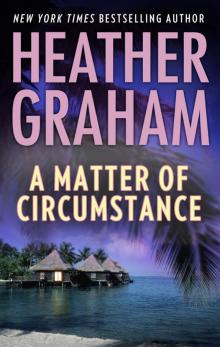 A Matter of Circumstance
A Matter of Circumstance Heather Graham's Haunted Treasures
Heather Graham's Haunted Treasures Tempestuous Eden
Tempestuous Eden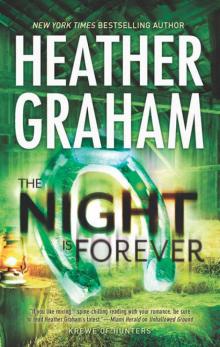 Krewe 11 - The Night Is Forever
Krewe 11 - The Night Is Forever Deadly Night
Deadly Night The Uninvited
The Uninvited Dust to Dust
Dust to Dust Heart of Evil
Heart of Evil A Perfect Obsession
A Perfect Obsession The Keepers
The Keepers Pale as Death
Pale as Death Phantom Evil
Phantom Evil Hallow Be the Haunt
Hallow Be the Haunt Night of the Wolves
Night of the Wolves The Night Is Forever
The Night Is Forever Golden Surrender
Golden Surrender Kiss of Darkness
Kiss of Darkness Beneath a Blood Red Moon
Beneath a Blood Red Moon A Dangerous Game
A Dangerous Game Ghost Shadow
Ghost Shadow Long, Lean, and Lethal
Long, Lean, and Lethal Fade to Black
Fade to Black The Rising
The Rising And One Wore Gray
And One Wore Gray Rebel
Rebel The Unseen
The Unseen The Night Is Watching
The Night Is Watching The Evil Inside
The Evil Inside The Unspoken
The Unspoken The Night Is Alive
The Night Is Alive The Unholy
The Unholy Nightwalker
Nightwalker Deadly Harvest
Deadly Harvest An Angel for Christmas
An Angel for Christmas A Pirate's Pleasure
A Pirate's Pleasure American Drifter
American Drifter Realm of Shadows
Realm of Shadows Blood on the Bayou
Blood on the Bayou Sacred Evil
Sacred Evil Dying to Have Her
Dying to Have Her The Cursed
The Cursed Captive
Captive Hurricane Bay
Hurricane Bay Drop Dead Gorgeous
Drop Dead Gorgeous Ghost Memories
Ghost Memories All Hallows Eve
All Hallows Eve Dying Breath
Dying Breath Deadly Fate
Deadly Fate The Dead Room
The Dead Room Lord of the Wolves
Lord of the Wolves Ghost Night
Ghost Night Ghost Walk
Ghost Walk The Forgotten
The Forgotten Unhallowed Ground
Unhallowed Ground One Wore Blue
One Wore Blue Dead By Dusk
Dead By Dusk Night of the Blackbird
Night of the Blackbird The Dead Play On
The Dead Play On Bride of the Night
Bride of the Night Wicked Deeds
Wicked Deeds The Forbidden
The Forbidden Triumph
Triumph Out of the Darkness
Out of the Darkness Love Not a Rebel
Love Not a Rebel The Last Noel
The Last Noel Tall, Dark, and Deadly
Tall, Dark, and Deadly The Death Dealer
The Death Dealer Dead on the Dance Floor
Dead on the Dance Floor Law and Disorder
Law and Disorder Dark Rites
Dark Rites New Year's Eve
New Year's Eve Hostage At Crystal Manor
Hostage At Crystal Manor And One Rode West
And One Rode West Home in Time for Christmas
Home in Time for Christmas Killing Kelly
Killing Kelly Blood Night
Blood Night Tangled Threat (Mills & Boon Heroes)
Tangled Threat (Mills & Boon Heroes) Darkest Journey
Darkest Journey Glory
Glory Deadly Touch
Deadly Touch An Unexpected Guest
An Unexpected Guest Night of the Vampires
Night of the Vampires Seize the Wind
Seize the Wind Ghost Moon
Ghost Moon The Vision
The Vision Dreaming Death
Dreaming Death Conspiracy to Murder
Conspiracy to Murder Horror-Ween (Krewe of Hunters)
Horror-Ween (Krewe of Hunters) The Summoning
The Summoning Waking the Dead
Waking the Dead Danger in Numbers
Danger in Numbers The Hidden
The Hidden Sweet Savage Eden
Sweet Savage Eden Tangled Threat ; Suspicious
Tangled Threat ; Suspicious Mother's Day, the Krewe, and a Really Big Dog
Mother's Day, the Krewe, and a Really Big Dog Picture Me Dead
Picture Me Dead The Killing Edge
The Killing Edge St. Patrick's Day
St. Patrick's Day Seeing Darkness
Seeing Darkness The Dead Heat of Summer: A Krewe of Hunters Novella
The Dead Heat of Summer: A Krewe of Hunters Novella Crimson Twilight
Crimson Twilight Haunted Destiny
Haunted Destiny Devil's Mistress
Devil's Mistress Banshee
Banshee The Unforgiven
The Unforgiven The Final Deception
The Final Deception A Horribly Haunted Halloween
A Horribly Haunted Halloween Haunted Be the Holidays
Haunted Be the Holidays Deadly Gift
Deadly Gift Easter, the Krewe and Another Large White Rabbit
Easter, the Krewe and Another Large White Rabbit Haunted
Haunted The Silenced
The Silenced Let the Dead Sleep
Let the Dead Sleep Christmas, the Krewe, and Kenneth
Christmas, the Krewe, and Kenneth Big Easy Evil
Big Easy Evil Sinister Intentions & Confiscated Conception
Sinister Intentions & Confiscated Conception Haunted Be the Holidays: A Krewe of Hunters Novella
Haunted Be the Holidays: A Krewe of Hunters Novella Blood Red
Blood Red A Perilous Eden
A Perilous Eden Slow Burn
Slow Burn Strangers In Paradise
Strangers In Paradise Bitter Reckoning
Bitter Reckoning Krewe of Hunters, Volume 1: Phantom Evil ; Heart of Evil ; Sacred Evil ; The Evil Inside
Krewe of Hunters, Volume 1: Phantom Evil ; Heart of Evil ; Sacred Evil ; The Evil Inside Do You Fear What I Fear?
Do You Fear What I Fear? The Face in the Window
The Face in the Window Krewe of Hunters, Volume 3: The Night Is WatchingThe Night Is AliveThe Night Is Forever
Krewe of Hunters, Volume 3: The Night Is WatchingThe Night Is AliveThe Night Is Forever Eyes of Fire
Eyes of Fire Apache Summer sb-3
Apache Summer sb-3 Sensuous Angel
Sensuous Angel In the Dark
In the Dark Knight Triumphant
Knight Triumphant Hours to Cherish
Hours to Cherish Tender Deception
Tender Deception Keeper of the Dawn tkl-4
Keeper of the Dawn tkl-4 Apache Summer
Apache Summer Between Roc and a Hard Place
Between Roc and a Hard Place Echoes of Evil
Echoes of Evil The Game of Love
The Game of Love Sacred Evil (Krewe of Hunters)
Sacred Evil (Krewe of Hunters) Bougainvillea
Bougainvillea Tender Taming
Tender Taming Keeper of the Night (The Keepers: L.A.)
Keeper of the Night (The Keepers: L.A.) Lonesome Rider and Wilde Imaginings
Lonesome Rider and Wilde Imaginings Lucia in Love
Lucia in Love The Gatekeeper
The Gatekeeper Liar's Moon
Liar's Moon Dark Rites--A Paranormal Romance Novel
Dark Rites--A Paranormal Romance Novel A Season for Love
A Season for Love Krewe of Hunters, Volume 6: Haunted Destiny ; Deadly Fate ; Darkest Journey
Krewe of Hunters, Volume 6: Haunted Destiny ; Deadly Fate ; Darkest Journey Keeper of the Dawn (The Keepers: L.A.)
Keeper of the Dawn (The Keepers: L.A.) Blood on the Bayou: A Cafferty & Quinn Novella
Blood on the Bayou: A Cafferty & Quinn Novella Double Entendre
Double Entendre A Perfect Obsession--A Novel of Romantic Suspense
A Perfect Obsession--A Novel of Romantic Suspense The Night Is Forever koh-11
The Night Is Forever koh-11 The Di Medici Bride
The Di Medici Bride When Irish Eyes Are Haunting: A Krewe of Hunters Novella
When Irish Eyes Are Haunting: A Krewe of Hunters Novella The Keepers: Christmas in Salem: Do You Fear What I Fear?The Fright Before ChristmasUnholy NightStalking in a Winter Wonderland (Harlequin Nocturne)
The Keepers: Christmas in Salem: Do You Fear What I Fear?The Fright Before ChristmasUnholy NightStalking in a Winter Wonderland (Harlequin Nocturne) Never Fear
Never Fear Dying Breath--A Heart-Stopping Novel of Paranormal Romantic Suspense
Dying Breath--A Heart-Stopping Novel of Paranormal Romantic Suspense If Looks Could Kill
If Looks Could Kill This Rough Magic
This Rough Magic Heather Graham's Christmas Treasures
Heather Graham's Christmas Treasures Hatfield and McCoy
Hatfield and McCoy The Trouble with Andrew
The Trouble with Andrew Never Fear - The Tarot: Do You Really Want To Know?
Never Fear - The Tarot: Do You Really Want To Know? Blue Heaven, Black Night
Blue Heaven, Black Night Forbidden Fire
Forbidden Fire Come the Morning
Come the Morning Dark Stranger sb-4
Dark Stranger sb-4 Lie Down in Roses
Lie Down in Roses Red Midnight
Red Midnight Krewe of Hunters Series, Volume 5
Krewe of Hunters Series, Volume 5 Night, Sea, And Stars
Night, Sea, And Stars Snowfire
Snowfire Quiet Walks the Tiger
Quiet Walks the Tiger Mistress of Magic
Mistress of Magic For All of Her Life
For All of Her Life Runaway
Runaway The Night Is Alive koh-10
The Night Is Alive koh-10 The Evil Inside (Krewe of Hunters)
The Evil Inside (Krewe of Hunters) All Hallows Eve: A Krewe of Hunters Novella (1001 Dark Nights)
All Hallows Eve: A Krewe of Hunters Novella (1001 Dark Nights) Tomorrow the Glory
Tomorrow the Glory Ondine
Ondine Angel of Mercy & Standoff at Mustang Ridge
Angel of Mercy & Standoff at Mustang Ridge Bride of the Tiger
Bride of the Tiger When Next We Love
When Next We Love Heather Graham Krewe of Hunters Series, Volume 4
Heather Graham Krewe of Hunters Series, Volume 4 A Season of Miracles
A Season of Miracles Realm of Shadows (Vampire Alliance)
Realm of Shadows (Vampire Alliance) When We Touch
When We Touch Serena's Magic
Serena's Magic Rides a Hero sb-2
Rides a Hero sb-2 All in the Family
All in the Family Handful of Dreams
Handful of Dreams A Stranger in the Hamptons
A Stranger in the Hamptons Krewe of Hunters, Volume 2: The Unseen ; The Unholy ; The Unspoken ; The Uninvited
Krewe of Hunters, Volume 2: The Unseen ; The Unholy ; The Unspoken ; The Uninvited Never Sleep With Strangers
Never Sleep With Strangers Eden's Spell
Eden's Spell A Magical Christmas
A Magical Christmas Forever My Love
Forever My Love King of the Castle
King of the Castle Night Moves (60th Anniversary)
Night Moves (60th Anniversary) The Island
The Island Borrowed Angel
Borrowed Angel Hallow Be the Haunt: A Krewe of Hunters Novella
Hallow Be the Haunt: A Krewe of Hunters Novella Why I Love New Orleans
Why I Love New Orleans The Last Cavalier
The Last Cavalier A Matter of Circumstance
A Matter of Circumstance Heather Graham's Haunted Treasures
Heather Graham's Haunted Treasures Tempestuous Eden
Tempestuous Eden Krewe 11 - The Night Is Forever
Krewe 11 - The Night Is Forever